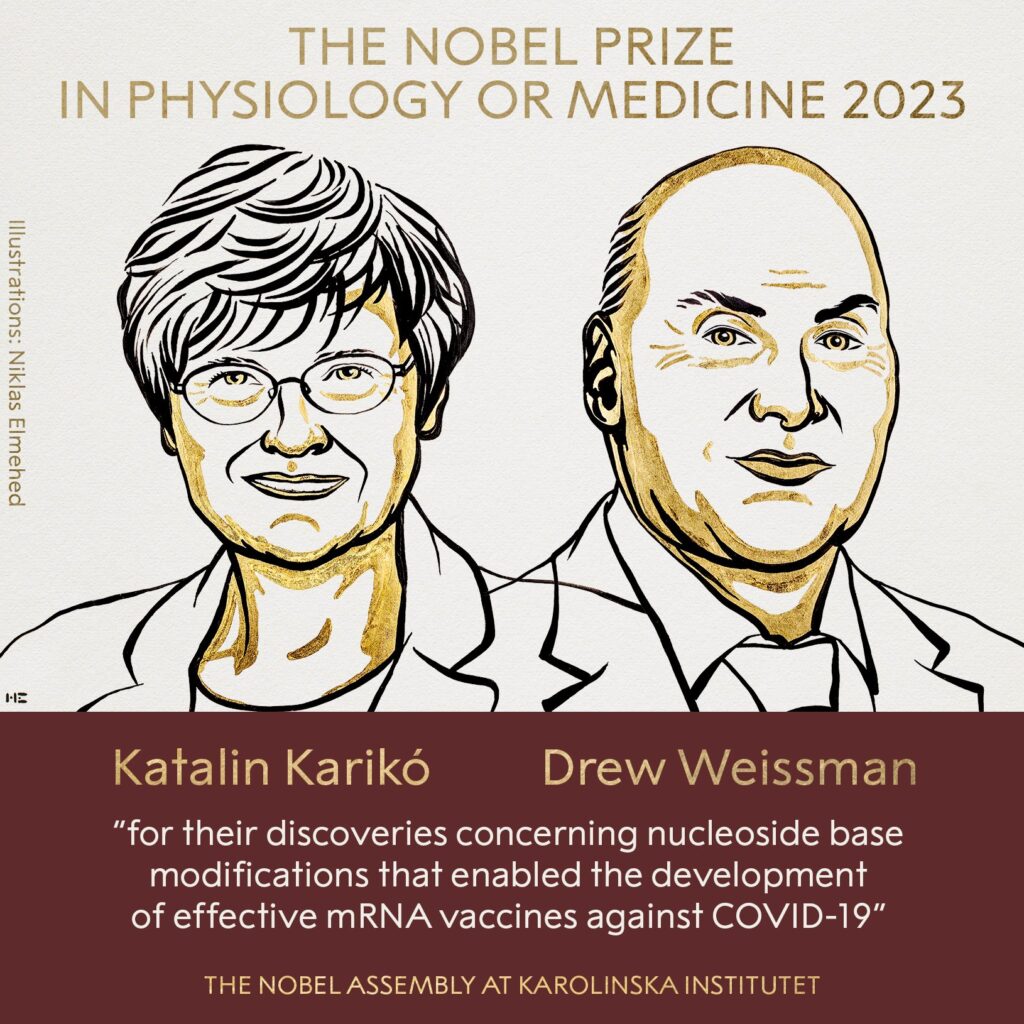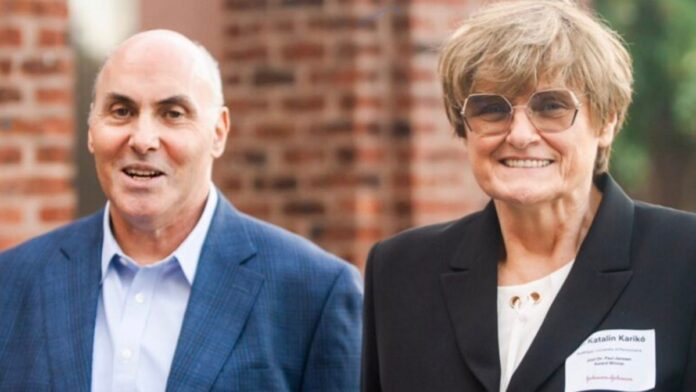Nobel Prize in Medicine 2023 Winner – In a well-deserved recognition of groundbreaking achievements, this year’s Nobel Prize in Physiology or Medicine has been awarded to two exceptional scientists: Katalin Karikó and Drew Weissman. Their transformative work on mRNA vaccines has not only been a game-changer in the fight against COVID-19 but has also opened up new possibilities in the realm of medicine. Let’s delve into the remarkable journey of these two scientists and the incredible impact of mRNA vaccines on global health.
The Nobel Prize Announcement: A Momentous Occasion
On a crisp morning in Sweden, the Nobel Prize committee unveiled the prestigious Nobel Prize in Medicine for 2023. The award was bestowed upon Katalin Karikó and Drew Weissman, celebrating their “groundbreaking findings” that have fundamentally reshaped our understanding of how mRNA interacts with our immune system.
Read More – Golden Bachelor Contestants 2023 – Meet the Charismatic Golden Bachelor Contestants 2023
Their work, initially published in a 2005 paper that flew under the radar, laid the foundation for a scientific revolution that would later serve humanity during the harrowing COVID-19 pandemic. The committee commended their contributions to the rapid development of vaccines during one of the most significant health crises of our time.

The Visionaries Behind the Science
Katalin Karikó, a Hungarian-American biochemist, and Drew Weissman, an American physician, both call the University of Pennsylvania home. Their collaboration became the cornerstone for companies like Pfizer, BioNTech, and Moderna, enabling them to pioneer a novel approach to vaccine production using messenger RNA (mRNA).
This revolutionary technology has ushered in a new era in medicine, offering the potential to develop vaccines for diseases such as malaria, RSV, and HIV. It also holds promise in treating infectious diseases like cancer through personalized vaccines.

Understanding mRNA: The Recipe Book of Life
To grasp the significance of mRNA vaccines, let’s draw an analogy: Imagine DNA as a vast recipe book containing all the instructions for life. In this analogy, messenger RNA (mRNA) is like a temporary handwritten copy of a recipe. Cells can “read” this genetic code and use it to create proteins.
In the case of mRNA vaccines, this temporary genetic code instructs our cells to produce a part of the virus, triggering the production of antibodies and bolstering the immune response. Unlike traditional vaccines, no live or weakened virus is injected; all that’s needed is the genetic sequence, not the actual virus itself.

A Bright Future for mRNA Technology
The Nobel committee emphasizes the remarkable flexibility and speed with which mRNA vaccines can be developed. This sets the stage for using this platform to create vaccines for a wide range of infectious diseases, offering hope for a healthier future.
Moreover, mRNA technology holds the potential to deliver therapeutic proteins and treat various types of cancer, promising new avenues in the fight against these diseases.
The Impact on Global Health
J. Larry Jameson, executive vice president of UPenn’s School of Medicine, aptly noted that Karikó and Weissman’s work “changed the world.” Their discoveries became the foundation upon which countless lives were saved during the COVID-19 pandemic. These visionary scientists provided a path out of the pandemic, leaving an indelible mark on the field of medicine.
The Road to the Nobel
Katalin Karikó’s journey from Hungary to the United States, driven by a relentless passion for mRNA research, is nothing short of inspiring. Despite facing skepticism and financial challenges, she persevered, and her partnership with Drew Weissman bore fruit in the form of groundbreaking discoveries.
Their chance meeting while photocopying research papers led to a remarkable collaboration, culminating in the publication of their pivotal work in 2005. Their foresight and dedication to the potential of mRNA paved the way for the rapid development of COVID-19 vaccines by Pfizer and Moderna.

Nobel Prize in Medicine 2023 Winner:
Katalin Karikó and Drew Weissman’s Nobel Prize in Medicine for 2023 is a testament to human ingenuity and persistence in the face of adversity. Their work on mRNA vaccines not only saved lives during the pandemic but also illuminated a path toward a brighter, healthier future. As we celebrate their achievements, we eagerly anticipate the continued impact of mRNA technology in the field of medicine, offering hope and healing for generations to come.




Nice one on scientist 🤞🏻
Very nice info…